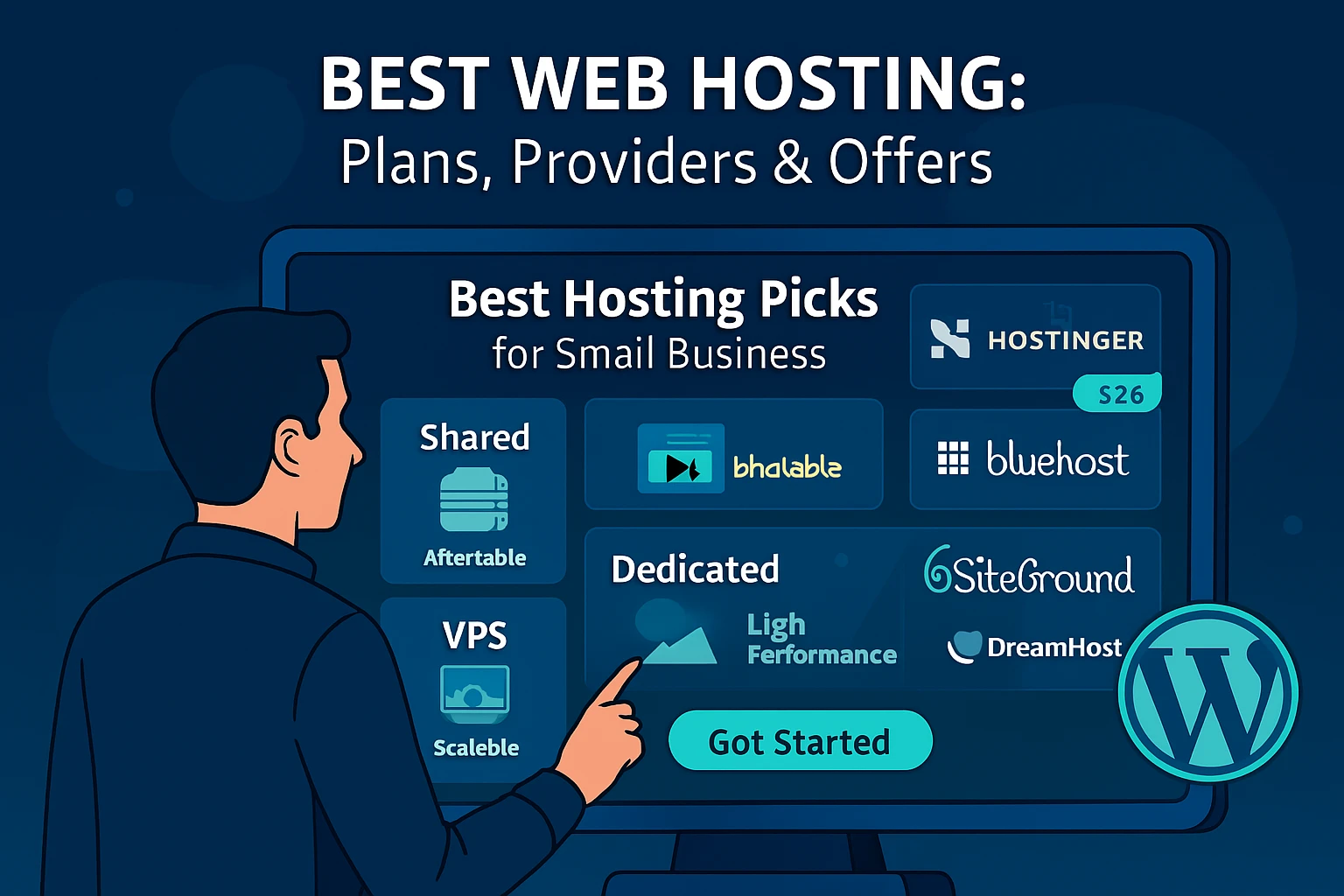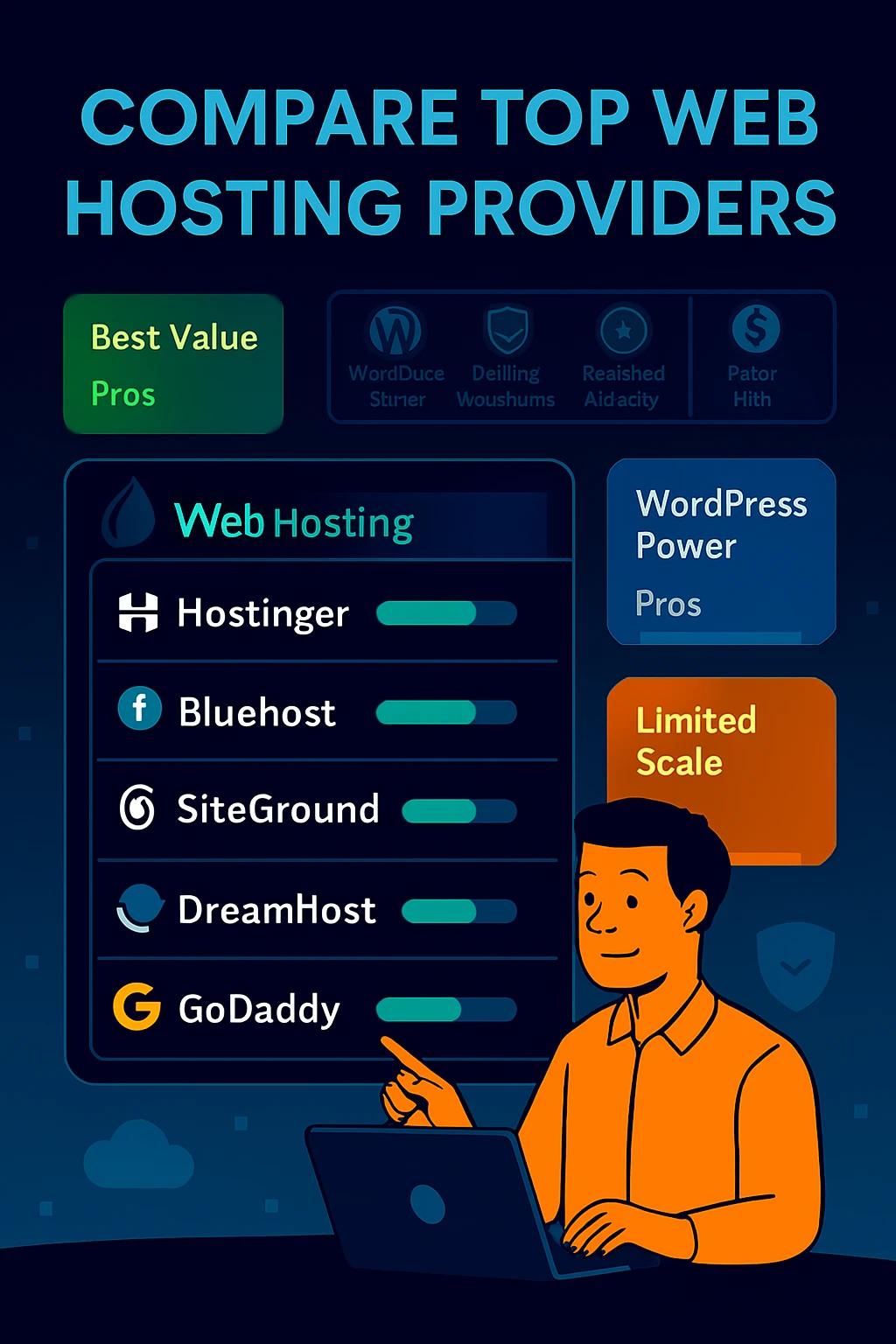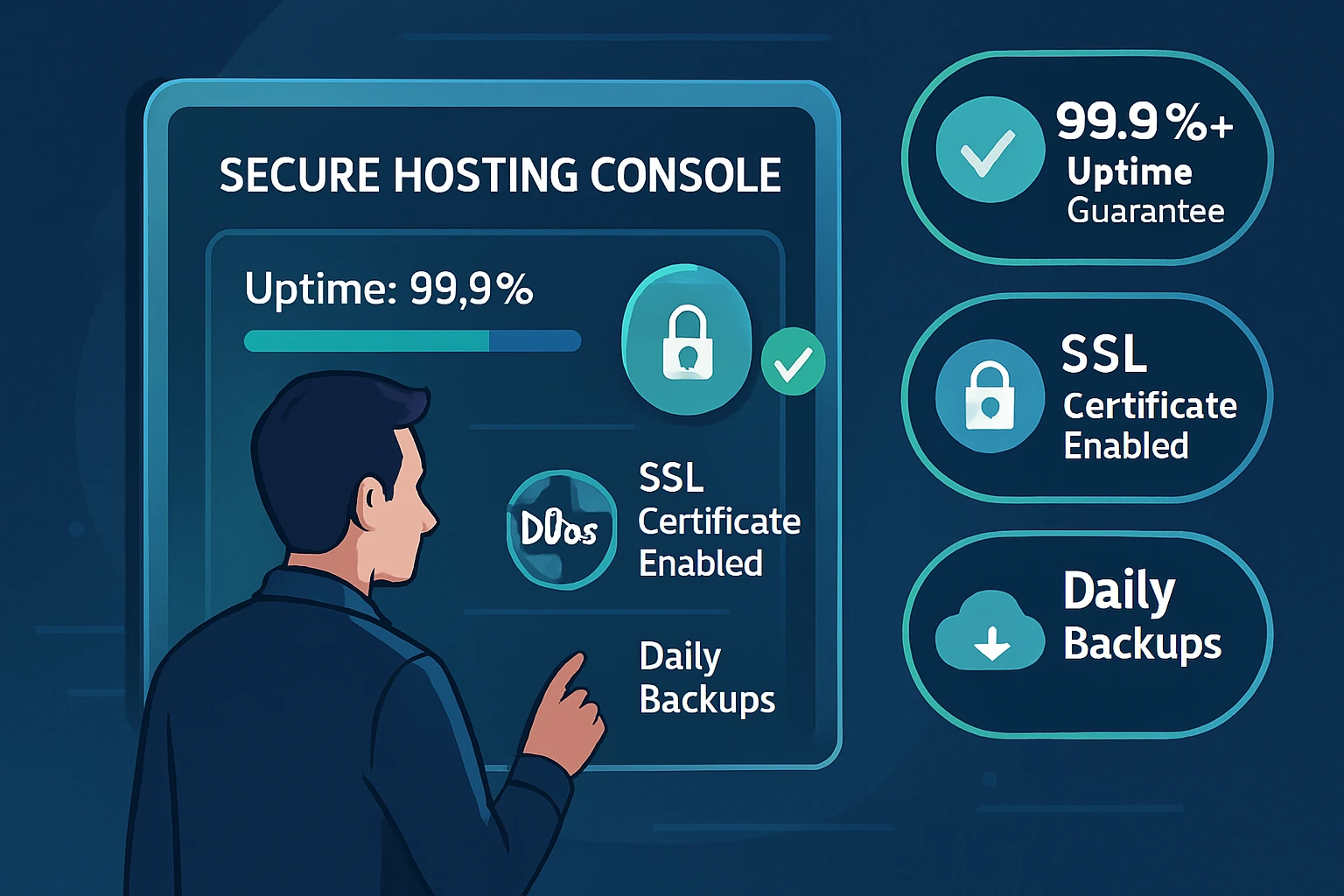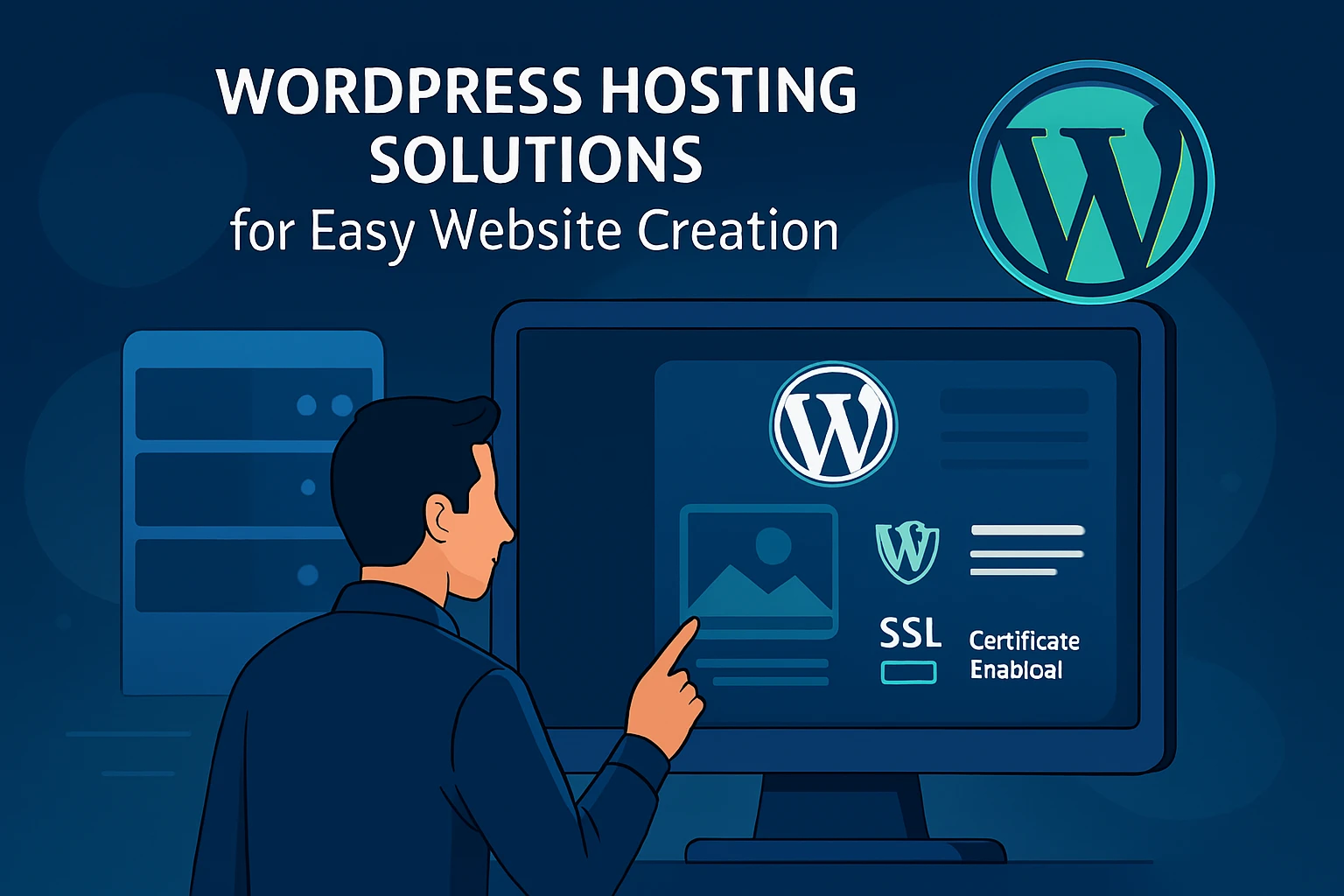Best Web Hosting: Plans, Providers & Offers for Small Business & Beginners

Choosing the best web hosting for your website or any small business is an important decision that can greatly impact the success of your online presence.
Navigating the vast landscape of hosting options can feel overwhelming, with countless providers vying for your attention and a confusing array of plans and features on offer. This guide aims to simplify the process, providing you with the knowledge and insights needed to make an informed choice that aligns with your specific needs and goals.
We'll explore the different types of web hosting available, from shared hosting to VPS and dedicated servers, explaining the pros and cons of each to help you determine which best suits your technical expertise, budget, and anticipated website traffic. We'll also delve into the essential features to look for in a web hosting provider, such as uptime guarantees, customer support, security measures, and scalability options. By understanding these key elements, you can confidently compare providers and select a hosting plan that delivers the performance, reliability, and security your website demands.
Furthermore, we'll highlight some of the best web hosting providers currently available, showcasing their strengths and weaknesses to provide a comprehensive overview of the market. Whether you're a complete beginner launching your first website or a small business owner seeking a more robust hosting solution, this guide will empower you to make the right decision and set your online venture up for success. We'll also provide tips on finding the best deals and offers to maximize your budget and get the most value for your investment.
Web Hosting Plans for Small Business & Beginners

For small businesses and beginners, the world of web hosting can seem like a maze of technical jargon and confusing options. Understanding the different types of hosting plans is the first step towards making the right choice. Shared hosting is often the most affordable and beginner-friendly option, where your website shares server resources with other websites. This is suitable for smaller websites with limited traffic, but performance can be affected if other sites on the server experience high traffic spikes.
As your website grows and requires more resources, a Virtual Private Server (VPS) can provide a middle ground between shared and dedicated hosting. A VPS offers more dedicated resources and greater control over your server environment, allowing for better performance and scalability. This is a good option for businesses expecting higher traffic or running more complex applications. However, it typically requires more technical expertise to manage.
For larger businesses or websites with very high traffic and specific security needs, dedicated hosting provides the ultimate in performance and control. With dedicated hosting, you have an entire server to yourself, allowing for maximum customization and resource allocation. This is the most expensive option, but it offers the best performance, security, and flexibility. Cloud hosting is another option that offers scalability and reliability by distributing your website across a network of servers. Choosing the right plan depends on your website's specific requirements, budget, and technical expertise.
Compare Top Web Hosting Providers

Choosing a web hosting provider is a crucial decision that can significantly impact your website's performance, security, and overall success. With a multitude of providers vying for your attention, comparing their offerings and identifying the best fit for your needs can be a daunting task. Several top web hosting providers consistently receive high ratings for their reliability, performance, customer support, and affordability.
Hostinger is often praised for its affordable plans and user-friendly interface, making it an excellent choice for beginners and small businesses. Bluehost is another popular option, particularly for WordPress users, as it's officially recommended by WordPress.org and offers a range of WordPress-specific features and tools. SiteGround is known for its excellent customer support and high-performance hosting, making it a great choice for businesses that value reliability and responsiveness.
Other notable providers include DreamHost, which offers a strong uptime guarantee and a variety of hosting options, and GoDaddy, a well-established provider with a wide range of services and a large customer base. When comparing providers, consider factors such as uptime guarantees, server locations, customer support availability, security features, and pricing plans. Reading reviews and comparing different providers side-by-side can help you make an informed decision and find the best web hosting solution for your specific needs.



